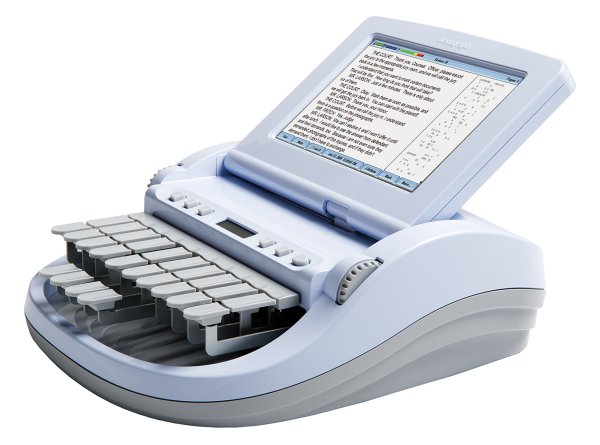Recognizing the Importance of Court Coverage in Legal Provider and Process
Court coverage plays a critical duty in the legal landscape, acting as the foundation of accurate paperwork in numerous legal procedures. By giving verbatim records, court reporters ensure that every testimony and argument is meticulously recorded, consequently safeguarding the integrity of the judicial procedure. Past simple documentation, their work sustains justness and openness, which are fundamental principles of justice. Nonetheless, the evolution of innovation and the ethical ramifications bordering this profession raise crucial questions regarding its future. What might these adjustments suggest for the lawful system and its stakeholders?
Duty of Court Reporters

In addition to transcription, court press reporters are typically charged with managing and keeping the flow of proceedings. They need to excel in lawful terms and have a thorough understanding of court room procedures to ensure that the record reflects the context and nuances of the discussion. Their job may also extend past typical courtrooms, encompassing administrative hearings, settlements, and various other legal setups where documentation is essential.
Furthermore, stenotype reporter might provide real-time coverage, making it possible for prompt access to transcripts during proceedings, which can be vital for the reliable management of justice. By guaranteeing that a precise document is maintained, stenotype reporter promote the honesty of the legal process, offering and facilitating allures as a crucial resource for lawyers in their pursuit of justice.
Relevance of Accuracy

The duty of accuracy prolongs past simple transcription; it incorporates the capacity to record the subtleties of speech, including tone, emphasis, and non-verbal hints, which can be important in recognizing the context of statements made. A precise document makes certain that all parties included-- courts, courts, and attorneys-- have access to the very same details, fostering justness and openness in the judicial process.
Additionally, accurate transcripts are crucial for the appellate procedure, where higher courts depend on them to examine reduced court choices. Errors can threaten the end result of an appeal, potentially impacting an event's civil liberties and freedoms. Thus, the dedication to precision in court coverage is not just a professional commitment yet a foundation of justice that maintains the policy of legislation.
Types of Lawful Process
Treatment a broad array of lawful contexts, court reporters are vital in different kinds of legal procedures, each needing distinct approaches and abilities. Amongst one of the most typical types are civil lawsuits, criminal tests, and management hearings. In civil lawsuits, court press reporters record motions, depositions, and testimonies, making certain that every information is documented accurately for prospective allures or negotiations.
In criminal trials, the duty of stenotype reporter comes to be much more essential, as they transcribe all elements of the procedures, consisting of jury find this choices, witness statements, and punishing phases - Court Reporting. The accuracy and immediacy of these documents are paramount, provided the prospective consequences for accuseds and the honesty of the judicial system
Administrative hearings, frequently carried out by governmental companies, likewise count on court press reporters to preserve official documents of proceedings. These hearings can entail disputes pertaining to regulative compliance, work concerns, or professional licensing, necessitating accurate paperwork.
In addition, specialized process such as adjudication and arbitration call for stenotype reporter to catch the nuances of settlements and contracts. Each sort of legal action provides special challenges, underscoring the importance of seasoned court reporters in maintaining the honesty of the lawful process.
Innovation in Court Coverage
Developments in innovation have actually revolutionized the field of court coverage, boosting both performance and precision in the transcription process. Traditional techniques of hands-on note-taking have actually been supplemented and, in some instances, replaced by advanced digital devices that simplify operations and enhance precision (Court Reporting). Stenotype reporter currently make use of sophisticated steno machines furnished with real-time transcription abilities, enabling instant accessibility to a verbatim account of procedures
Additionally, the assimilation of speech recognition software program has actually additionally transformed the coverage landscape. This technology allows the automated transcription of spoken words, significantly minimizing the time needed for generating main documents. In addition, cloud-based systems help with easy storage space and retrieval of records, making certain that attorneys can access essential papers from anywhere, any time.
Video conferencing tools have actually likewise become vital parts in remote depositions and hearings, assisting court reporters capture procedures in real-time, regardless of place. The mix of these technological innovations not just enhances the precision of lawful paperwork however likewise sustains an extra adaptable and efficient lawful process. As the field continues to advance, embracing these developments will certainly be crucial in satisfying the growing demands of the legal sector.
Honest Considerations in Coverage
The integration of technology in court reporting brings with it a collection of honest considerations that specialists should navigate very carefully. As court reporters progressively use electronic tools, concerns surrounding accuracy, Court Reporting privacy, and stability come to the forefront. Securing delicate information is extremely important; reporters must make sure that any kind of electronic documents are safely saved and shared only with accredited people.
Furthermore, the accuracy of transcriptions is crucial. Utilizing software application for real-time coverage does not discharge court reporters from the responsibility of ensuring that the final item is specific. Honest responsibilities determine that any type of mistakes need to be quickly corrected and connected to relevant events.

Finally, conformity with lawful requirements and industry policies is crucial. Stenotype reporter must remain educated regarding developing ethical standards to copyright the trust fund placed in them by the legal system. By resolving these ethical factors to consider, stenotype reporter can proceed to supply vital services in legal proceedings while maintaining public self-confidence.
Final Thought
In final thought, court coverage plays a vital function in the legal system by guaranteeing precise and dependable documentation imp source of judicial proceedings. The precise work of court press reporters promotes the integrity of the lawful procedure and supports the legal rights of individuals included.
Court coverage plays a crucial function in the lawful landscape, serving as the backbone of precise paperwork in different legal proceedings.Court reporters regularly play a crucial function in the judicial process by creating precise, verbatim transcripts of lawful procedures.In addition, accurate transcripts are important for the appellate process, where higher courts depend on them to review reduced court choices.Covering a wide selection of legal contexts, court reporters are necessary in different types of lawful proceedings, each requiring unique approaches and skills. By dealing with these ethical factors to consider, court press reporters can proceed to offer vital services in legal process while preserving public confidence.